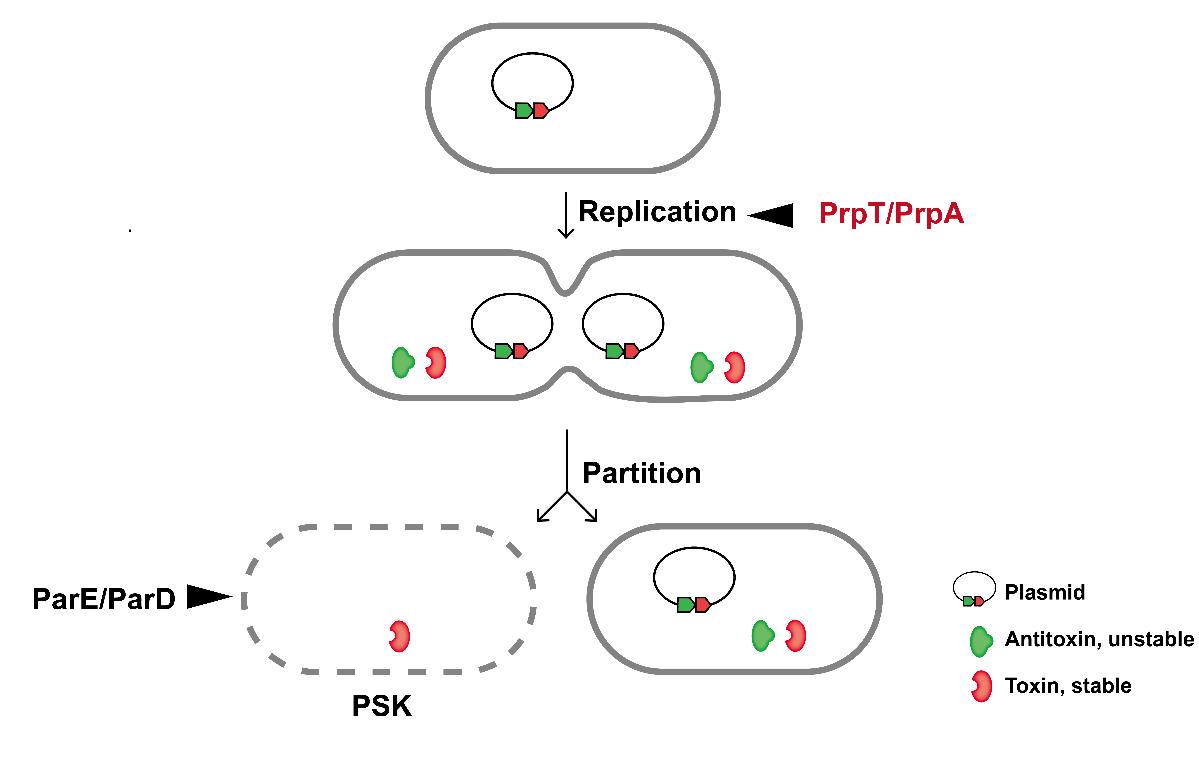Conjugative plasmids are extrachromosomal genetic elements that carry genetic determinants for adaptive traits. They contribute to the global dissemination of antibiotic resistance among multidrug-resistant pathogenic bacteria.
In particular, these plasmids can stably maintain in bacterial host even in the absence of antibiotics, and further mediate the transmission of antibiotic resistance genes.
TA systems were initially identified on the conjugative plasmids in the 1980s, and later they were found to be ubiquitous among conjugative plasmids.
Recently, researchers led by Prof. WANG Xiaoxue from the South China Sea Institute of Oceanology (SCSIO) of the Chinese Academy of Sciences found that a conjugative-plasmid encoded toxin-antitoxin (TA) system directly controls the plasmid replication. Their study was published in PNAS.
Specifically, the antitoxin titrates plasmid replication by regulating origin opening and limiting the binding of the plasmid replicator to plasmid origin.
“This TA family is conserved on conjugative plasmids of pathogenic bacteria, suggesting that host bacteria can use TA to regulate plasmid copy number and the doses of plasmid-encoded genes,” said Prof. WANG.
Plasmid-encoded TA systems are generally known to stabilize plasmids via postsegregational killing. This work reveals their new physiological function of directly regulating plasmid replication for the first time.
Contact:Prof. WANG Xiaoxue
E-mail:xxwang@scsio.ac.cn
https://www.pnas.org/content/118/4/e2011577118

PrpT/PrpA TA controls plasmid replication (Image by WANG Pengxia, SCSIO)
